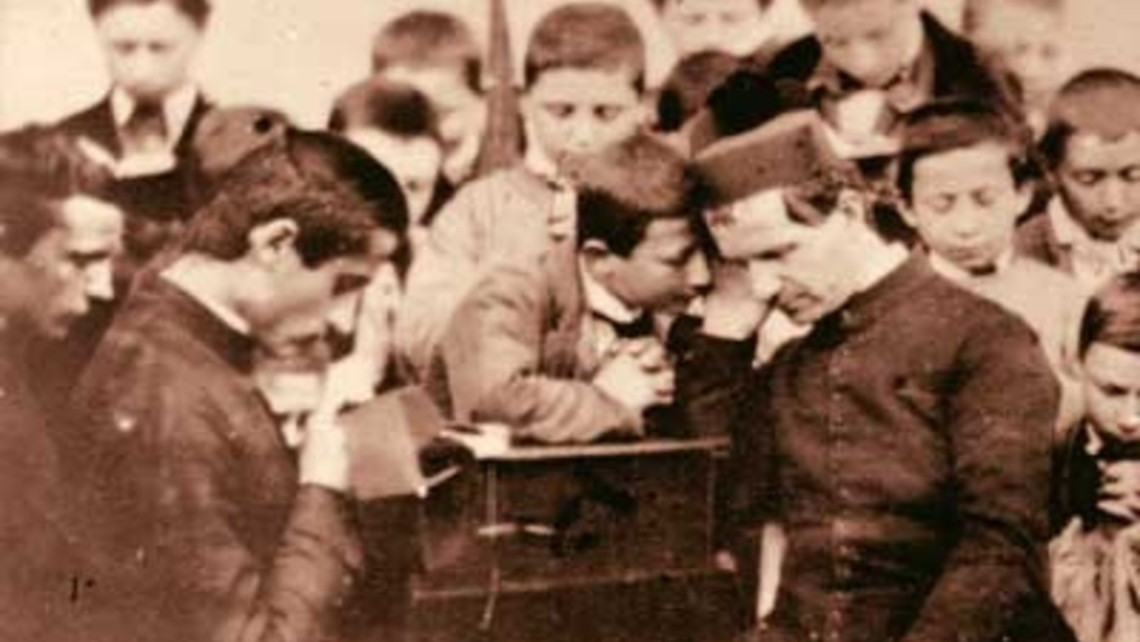
The evangelist St. John the Baptist introduces us to the drama that affects every human being when he reminds both Jews and Gentiles to repent and believe in the Gospel. The battle of good and evil we inherit at birth reveals the Baptist’s initial message to the entire world, focused on the need to renounce sin and make a profession of faith to God the Father. The message to repent reflects the need to nurture the soul, and the message to believe in the Word of God reflects the need to nourish the soul.
St. John the Baptist proposes a new journey for all of God’s children to follow, one that will require the person to turn away from sin and begin to turn toward an active relationship with the Son of God, Jesus Christ. As the initial drama of the Paschal Mystery of Jesus Christ is introduced, the fulfillment of this mystery is what lies ahead for anyone who chooses to renounce sin and embrace the salvific message of Jesus Christ.
The soul must be both nurtured and nourished
The great educator and catechist St. John Bosco understood the drama and battle between good and evil in ministering to his boys within the streets of Turin. The struggles he encountered with these young boys required direct moral reasoning, a study of the Catholic faith, and love. These three principles, which encompassed part of his preventive system of learning, expressed the importance of nurturing the child by providing food, shelter, education, and nourishment, by providing religious instruction and affirming their identity as children of God.
The ability to relate and forge an open dialogue with his boys was an important tenet of his way of introducing a sense of acceptance and love. His methodology of reason, religion, and kindness provided an opportunity to establish an active relationship with the young men of his oratory and provide further spiritual and doctrinal formation.
His Preventive system of education was not to minimize or stifle a child’s abilities. On the contrary, the aim of nurturing and nourishing a child was by exercising genuine care for the soul of a child so that the child would know he is loved. St. John Bosco’s entire approach was based on religion, and he stressed that the sacrament of Confession and Holy Communion serve as the pillars of his approach.
A love for Jesus Christ
Don Bosco’s greatest strengths were his piety and love for the Gospel of Jesus Christ. These charisms were instrumental in his mission to serve the young boys of Turin. In the following letter, we encounter a glimpse of his loving approach to nurturing and nourishing his students:
I have always labored out of love,
First of all, if we wish to appear concerned about the true happiness of our foster children and if we would move them to fulfill their duties, you must never forget that you are taking the place of the parents of these beloved young people. I have always labored lovingly for them and carried out my priestly duties with zeal. And the whole Salesian society has done this with me.
My sons, in my long experience, very often I had to be convinced of this great truth. It is easier to become angry than to restrain oneself and to threaten a boy than to persuade him. Yes, indeed, it is more fitting to be persistent in punishing our own impatience and pride than to correct the boys. We must be firm but kind and be patient with them.
I give you as a model the charity of Paul, which he showed to his new converts. They often reduced him to tears and entreaties when he found them lacking docility and even opposing his loving efforts. See that no one finds you motivated by impetuosity or willfulness. It is difficult to keep calm when administering punishment, but this must be done if we are to keep ourselves from showing off our authority or spilling out our anger.
Let us regard those boys over whom we have some authority as our own sons. Let us place ourselves in their service. Let us be ashamed to assume an attitude of superiority. Let us not rule over them except for the purpose of serving them better. This was the method that Jesus used with the apostles. He put up with their ignorance and roughness and even their infidelity. He treated sinners with kindness and affection that caused some to be shocked, others to be scandalized, and still others to hope for God’s mercy. And so, he bade us to be gentle and humble of heart.
They are our sons, and so in correcting their mistakes, we must lay aside all anger and restrain it so firmly that it is extinguished entirely. There must be no hostility in our minds, no contempt in our eyes, no insult on our lips. We must use mercy for the present and have hope for the future, as is fitting for true fathers who are eager for real correction and improvement. In serious matters, it is better to beg God humbly than to send forth a flood of words that will only offend the listeners and have no effect on those who are guilty.
From a letter by Saint John Bosco, priest
(Epistolario, Torino, 1959, 4, 201-203)
St. John Bosco, Pray for us!






